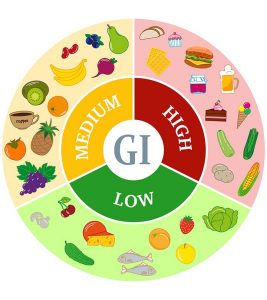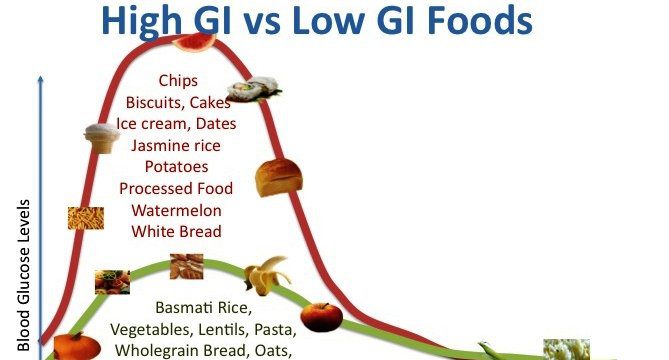What Is The Glycemic Index?
 Many articles about nutrition usually have something to say about the glycemic index. But what is this index? What is it so important to your nutritional puzzle?
Many articles about nutrition usually have something to say about the glycemic index. But what is this index? What is it so important to your nutritional puzzle?
Let’s Define The Glycemic Index
According to the University of Sydney, the Glycemic Index is a numerical rating of the amount of carbohydrates in different foods. This rating is based on how slowly or quickly these foods are absorbed into the blood stream and, therefore, affect the body’s blood sugar level. This is important because extreme variations in the body’s blood sugar level can leave you feeling tired, irritable and moody.
Find the glycemic index of some of the most common foods we eat.
Highs
For instance, anything sugary rates higher on the index because sugar is quickly absorbed into the blood stream. Hence, the “sugar rush”. Eat a candy bar when you’re hungry and you may feel energized for a period of time. The sugar in the candy bar spikes your blood sugar level quickly so you may feel energized for a period of time. But once the “rush” dissipates, you feel worse than you did before you ate the candy bar. Why? Your sugar level drops quickly, leaving you feeling drained.
L ows
ows
Conversely, any food with a lower rating on the index is absorbed more slowly in the body. This means your blood sugar levels stay more level after the meal. Ensuring more lower glycemic foods are in your diet is one of the best ways to move you toward a more healthy lifestyle.
The Glycemic Index Is Not A “One Size Fits All” Solution
Sure, it sounds easy enough. Eat just the foods on the lower end of the scale and you’ll be fine. Unfortunately, it doesn’t work that way. Here are a few reasons why:
- Carb amounts vary by food
- The index rating is for one food, by itself, not a whole meal. So there is no accounting for glycemic “spikes” from other foods
- The index makes fructose artificially look good
- It’s not a great tool for weight loss
You can learn more about these and other reasons from this article from Paleo Leap.
Other Resources:
Harvard Medical School published a short article on the glycemic index vs. glycemic load. Learn the difference between the two here.
Wikipedia also has an informative article about the glycemic index, including groupings, how the index can be applied and its limitations. Read more here.Read more here.
